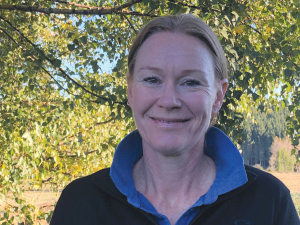In a normal year, lambs do not require a drench at docking/tailing.
A routine drench at this time may not be generating as much value as farmers might imagine.
Wormwise programme manager Ginny Dodunski says the scouring, reduced appetite and poor growth rates associated with worms are partly a result of an animal’s immune response to internal parasites.
She explains that young lambs have no immune response to worm larvae, so don’t suffer the same negative consequences associated with worm burdens.
Many of the worms that young lambs are ingesting cannot complete their lifecycle so cannot build up numbers until the lamb has a fully functioning rumen at around four to five weeks of age.
“So, if you’re drenching at docking you may not be kicking out as many worms as you think you are,” Dodunski adds.
Another reason for not drenching at docking is the presence of a worm called Strongyloides. This worm has a completely different lifecycle to other internal parasites in that lambs will pick these worms up through their skin or from the ewe’s udder. However, lambs do set up a rapid immune response to Strongyloides at four to five weeks of age.
While lambs may appear dirty, they will dry up of their own accord irrespective of whether or not they have been drenched.
Dodunski says the only time lambs may benefit from a drench at tailing is where ewes are in poor condition, are underfed and not milking – so lambs are forced to eat a lot more grass than would be typical and a drench maybe useful in this circumstance.



















